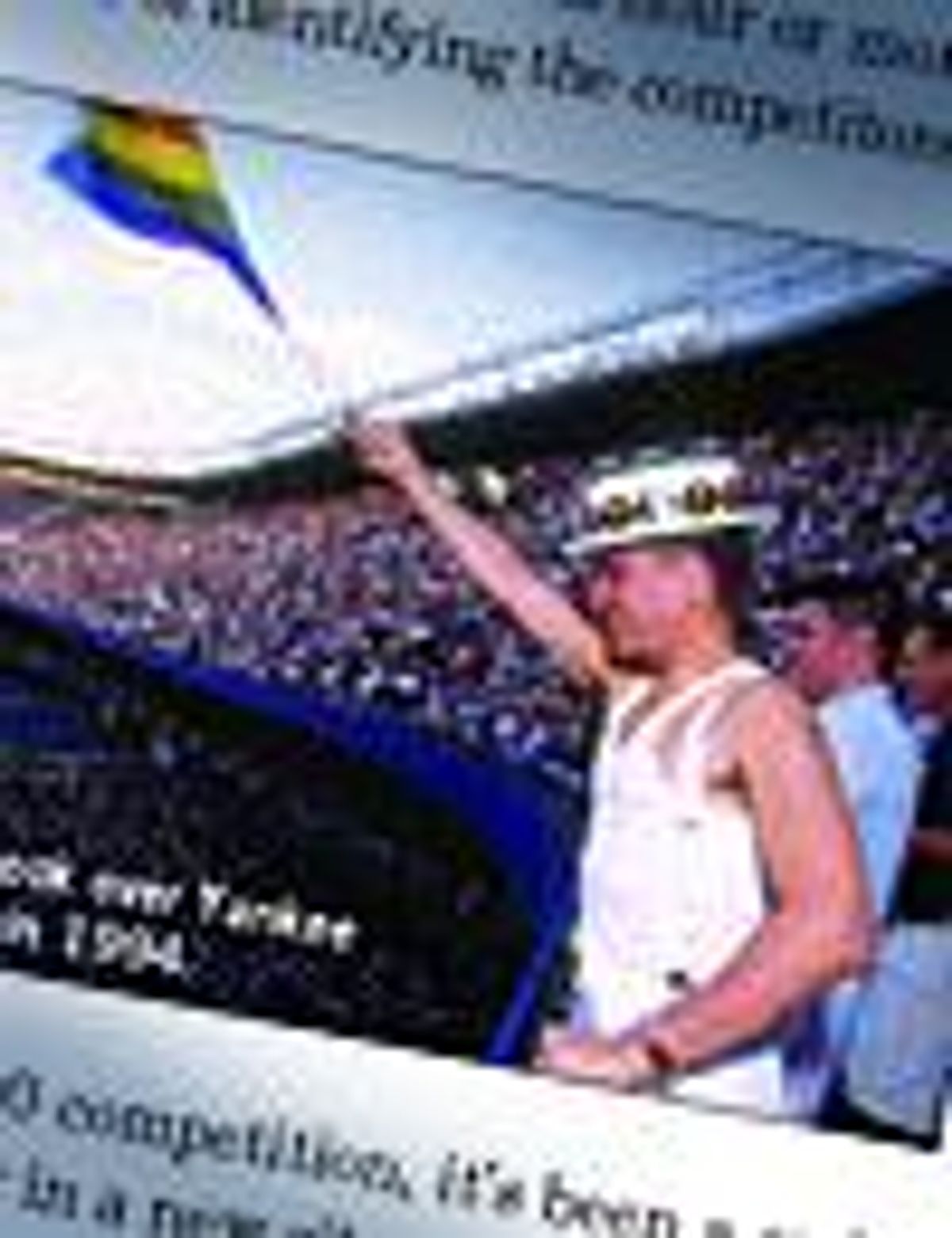Voices
Are two games
better than one?
Are two games
better than one?

By continuing to use our site, you agree to our Private Policy and Terms of Use.
Are two games
better than one?

"Where ya from?" The achingly gruff voice of Harvey Fierstein echoed through Yankee Stadium as a parade of gay and lesbian athletes flowed ever so slowly around the field. The playwright and actor had been left on this grand stage without any lines, stranded on a dais constructed over the pitcher's mound in front of thousands of spectators. So he was improvising. "Where ya from?" he yelled over and over. The athletes yelled back, and Harvey repeated into his microphone the bits and pieces he could make out.
Thus began the closing ceremony for 1994's Gay Games IV. The organizers had cooked up the athletes' grand entrance--which went on for a half hour or more--but hadn't thought to provide any narration or means of identifying the competitors.
Harvey made the best of it, and his good-natured prodding has become an inside joke between my partner and me. "Where ya from?" we'll fake-shout in our gruffest Harvey voices and laugh. No one else knows why this is funny. You had to be there.
We owe that souvenir to the Gay Games' disarray. A more professionally produced event would have left no opportunity for Harvey's bellowing. But since the Games moved from its San Francisco birthplace to Vancouver for the 1990 competition, it's been a series of "let's put on a show" events staged by a new crew in a new city every four years.
Each time, the nonprofit Federation of Gay Games selects a freshly assembled committee of planners and promoters. Then it offers advisory support as a bunch of neophytes learn from scratch how to put on an Olympic-size event. Since Vancouver, each local committee--in New York, in Amsterdam in 1998, and in Sydney in 2002--has had grand plans and hopes. And each has wound up tripping over an endless series of unanticipated hurdles and unable to swim its way out of a river of red ink.
For those of us in the stands or on the playing fields, these behind-the-scenes failures may have little or no impact on our enjoyment. For dedicated Games competitors, who loyally support every event, this issue's cover line, "Saving the Games," may seem harsh or flatly inaccurate. They come, they perform, and win or lose, they take home precious memories and medals. What's to save?
Yet clearly something needs work when the drama gets so heated that Gay Games splits itself in two. Original 2006 host city Montreal, selected in 2001 but abandoned over financial disagreements in 2003, is going forward with Outgames, while the Federation of Gay Games hastily set up shop in Chicago. Are two games better than one?
We'll soon know. Maybe this will be the year that organizers build institutional memory, learn from past mistakes, and guarantee the continuation of these competitions. But we can't ignore the obvious: Two games are not better than one unless each flourishes in a way that no Gay Games has in at least 16 years.
Organizers in both Chicago and Montreal promise that will happen this summer. It could well be so: Both events are going full steam ahead, with ample sponsorship and upward of 10,000 athletes warming up (a symbolic three of whom The Advocate profiles in this issue). Let's hope. In any case, I'm sure the vast majority of those athletes will have the time of their lives in Chicago and Montreal--wherever they're from, and wherever each of these athletic events is headed in the future.
